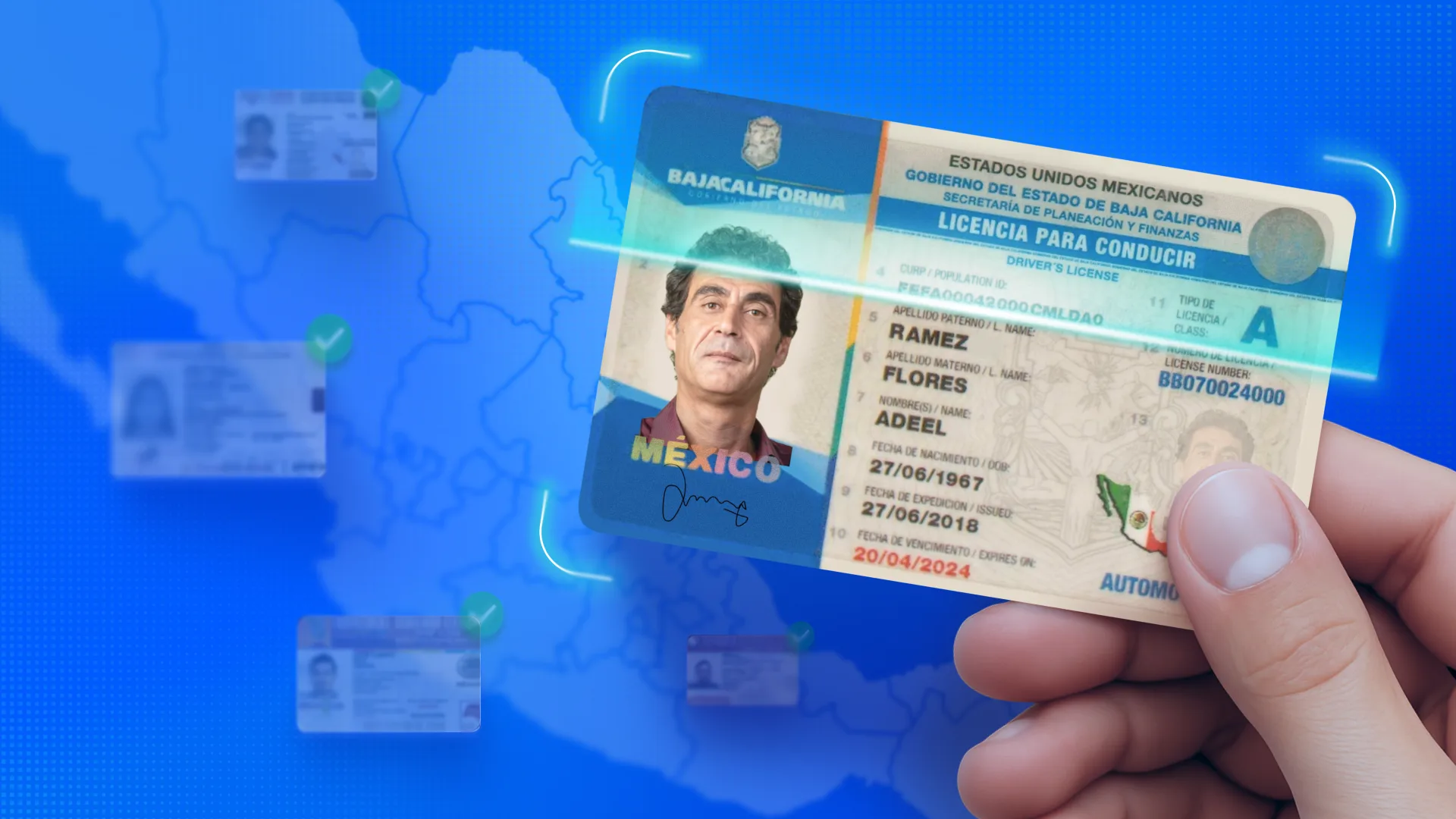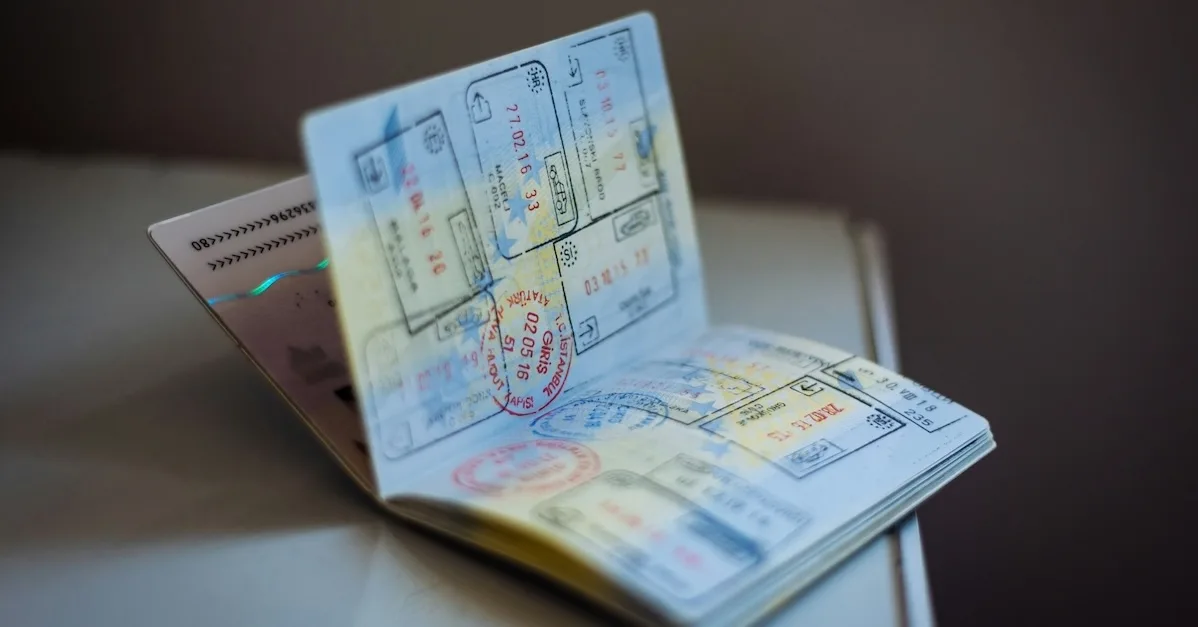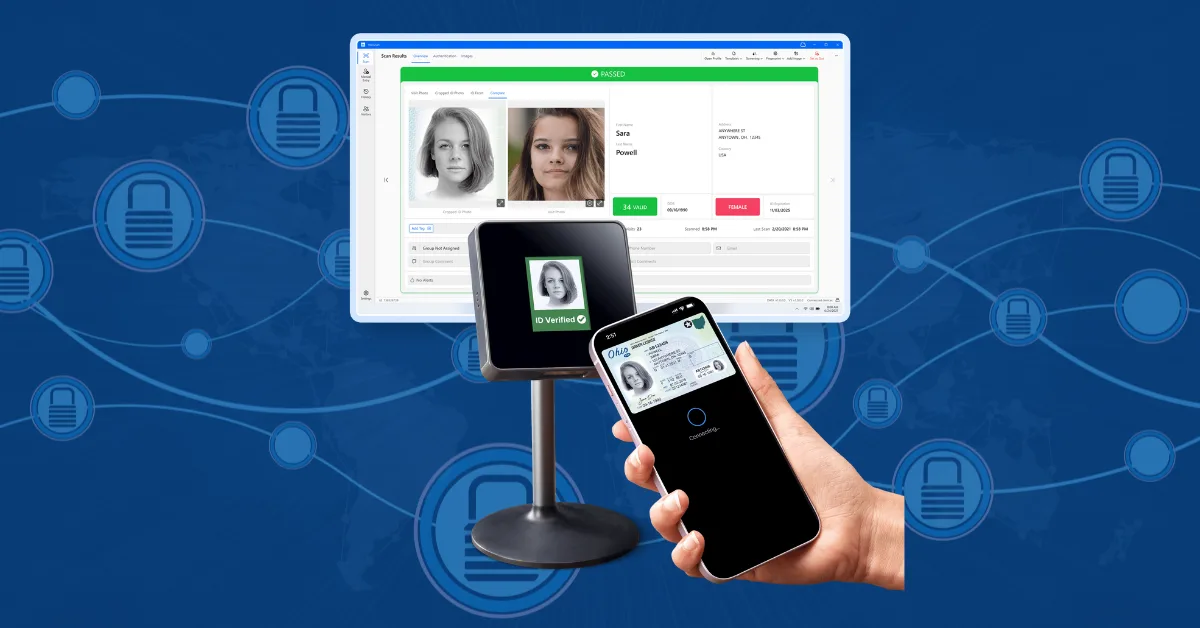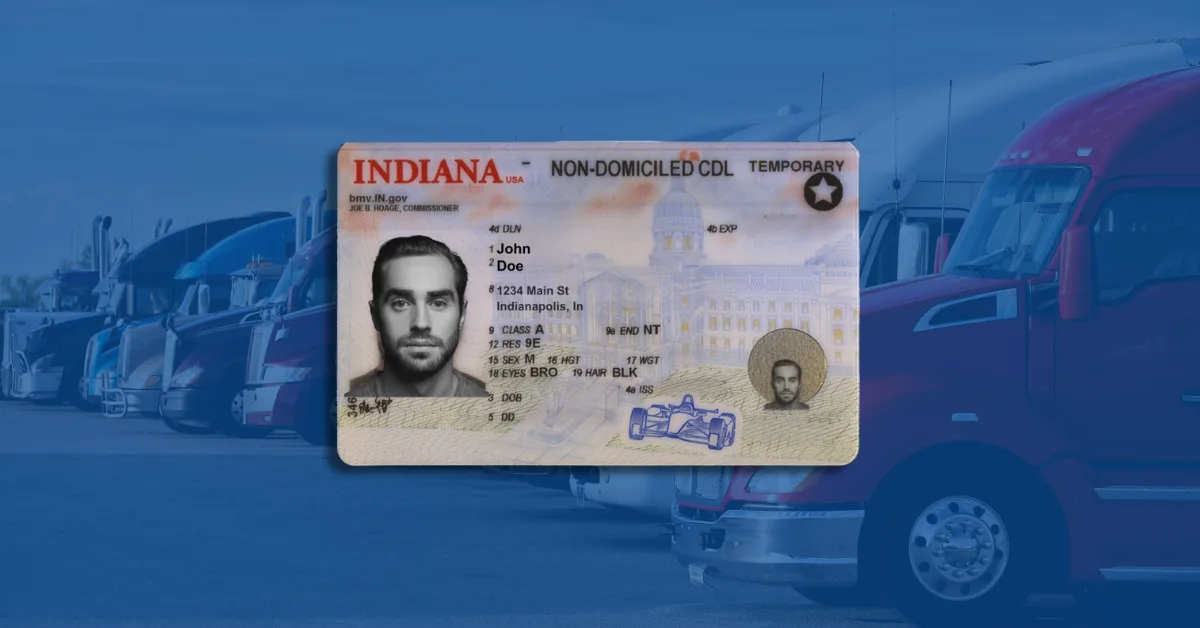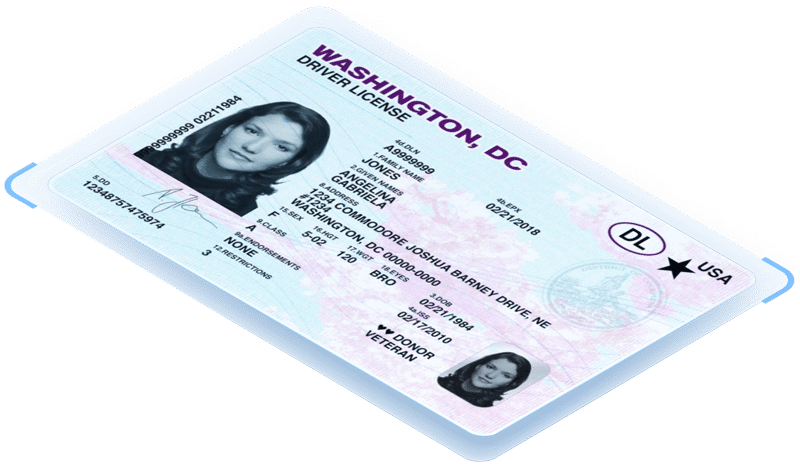Verifying Mexican identification documents can be challenging due to the wide variety of formats, issuers, and security features. Unlike countries with a single standardized ID, Mexico issues multiple types of IDs, including voter cards, consular IDs, and more than 30 different state driver’s licenses. Each document type has its own layout, data fields, and authentication markers, which can make manual review error-prone and time-consuming.
Businesses that need to confirm identity for onboarding customers, preventing ID fraud, or ensuring regulatory compliance for Mexican citizens should rely on ID verification software. Advanced tools can scan barcodes, read MRZ and NFC chips, detect UV and microprint features, and validate against known templates to ensure the ID is authentic and reduce the risk of fraud.
Types of Mexican ID cards
Mexican voter cards (credencial para votar)
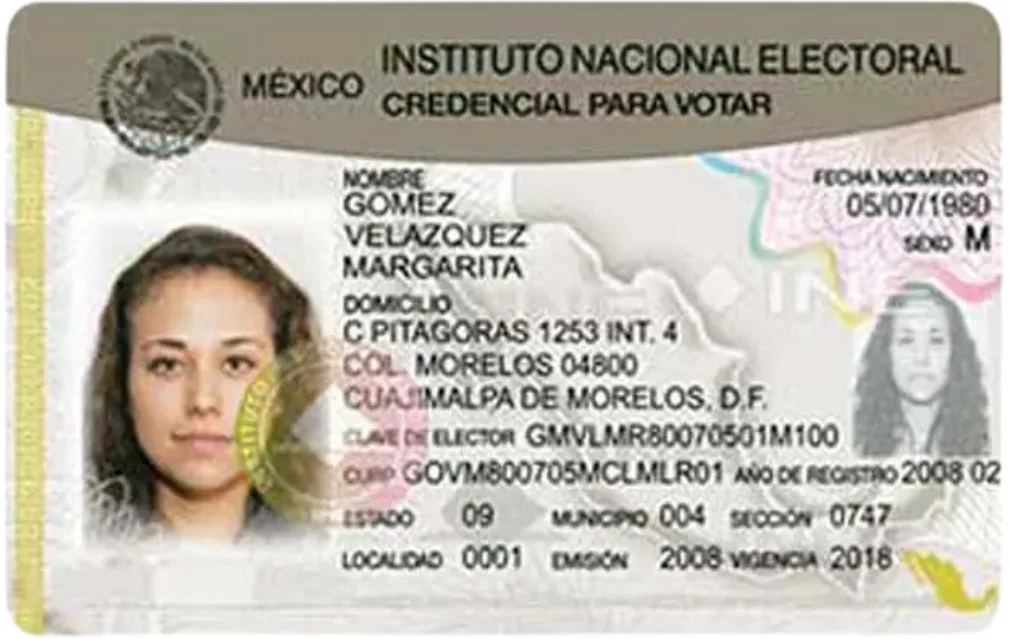
What are Mexican voter cards?
The Mexican voter card, or credencial para votar, issued by the National Electoral Institute (INE), is the most commonly used form of identification in Mexico. While primarily designed for voting, these cards serve as the de facto national ID and are widely accepted in banking, government, and business transactions. Because there’s a single national standard, voter cards are consistent across all states, making them relatively straightforward to verify.
What data do Mexican voter cards contain?
Mexican voter cards include:
- Full name (first and last)
- Date and place of birth
- Gender
- Address
- Cardholder photo
- Unique 18-character voter number
- CURP (Unique Population Registry Code)
Since 2019, voter cards have also included multiple barcodes on the back—an MRZ, a 1D barcode, and several QR codes—containing encrypted ID data.
What security features do Mexican voter cards contain?
All Mexican voter cards contain main security features that make tampering or counterfeiting difficult, including:
- UV ink lines
- Guilloche patterns
- Microprint
Mexican consular ID cards (matrícula consular)
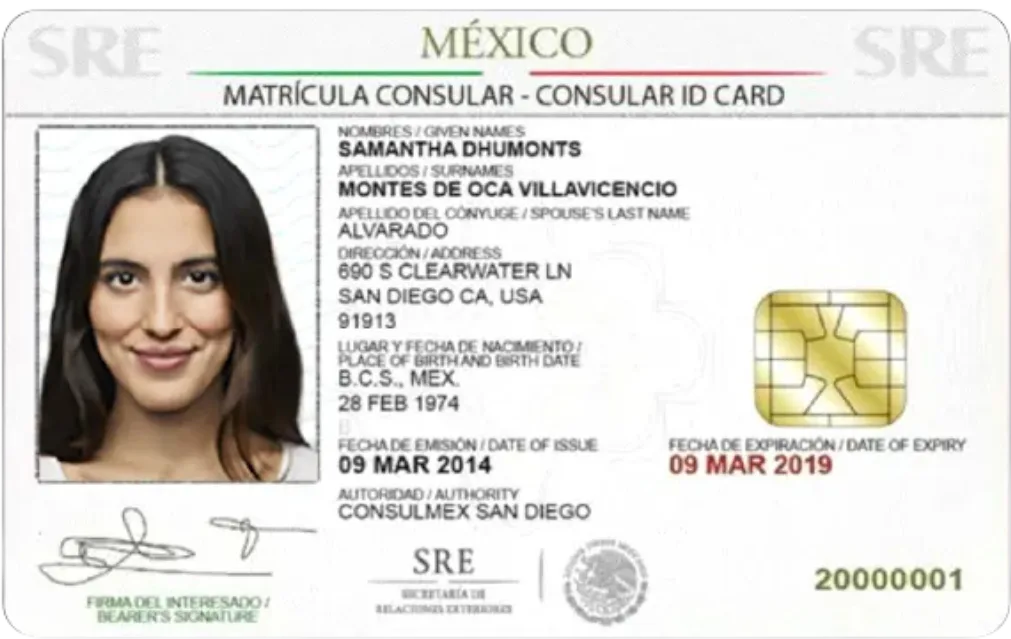
What are Mexican consular ID cards?
For Mexican citizens living abroad, especially in the United States, the government issues consular IDs through its embassies and consulates. These cards help citizens prove identity and residence, and they are often accepted by banks, state agencies, and local authorities.
Consular IDs are valid for five years and are not issued to applicants with a criminal record or pending legal issues in Mexico.
What data is contained in Mexican consular ID cards?
- Full name
- Date of birth
- Place of birth
- Residential address
- Issue and expiration dates
- ITIN (Individual Taxpayer Identification Number) for tax and work purposes
The back of the card includes an MRZ barcode encoding extra details such as height and eye color. Newer versions also contain an NFC chip with stored personal data.
What security features are present on Mexican consular ID cards?
- Microprint
- Laser engraving
- UV elements
- Security lamination with a kinetic rainbow background
Mexican drivers licenses

How are Mexican drivers licenses issued?
Each of Mexico’s 31 states plus Mexico City issues its own driver’s licenses—meaning there are at least 32 unique formats. While licenses differ in appearance, they are recognized nationwide.
What features are consistent across states on Mexican drivers licenses?
Every legitimate drivers license from Mexico will contain:
- The words “Licencia Federal de Conductor”
- A unique driver’s license number (beginning with letters identifying the issuing state)
- Date of issuance and expiration date
- Cardholder’s date of birth
- License class, endorsements, and restrictions
What features are different across states on Mexican drivers licenses?
While most drivers licenses are only in Spanish, some states have both Spanish and English on their drivers licenses.
Each state may also have different security features present, such as UV ink, holograms, or microprint.
Additionally, at least four Mexican states have smart cards, which are linked to a centralized platform for a secure way to share information between government departments.
Which states issue Mexican drivers licenses?
Mexican drivers licenses are issued by the following states:
- Aguascalientes
- Baja California
- Baja California Sur
- Campeche
- Chiapas
- Chihuahua
- Coahuila
- Colima
- Durango
- Guerrero
- Guanajuato
- Hidalgo
- Jalisco
- México
- Michoacán
- Morelos
- Nayarit
- Nuevo León
- Oaxaca
- Puebla
- Querétaro
- Quintana Roo
- San Luis Potosí
- Sinaloa
- Sonora
- Tabasco
- Tamaulipas
- Tlaxcala
- Veracruz
- Yucatán
- Zacatecas
Coahuila, Mexico drivers license

Notable features of the Coahuila drivers license include:
- Guilloche security pattern
- Ghost image
- Two unique ID numbers, name, date of birth, issue and expiration date present on front
- Text in both Spanish and English
- Cardholder signature
Colima, Mexico drivers license
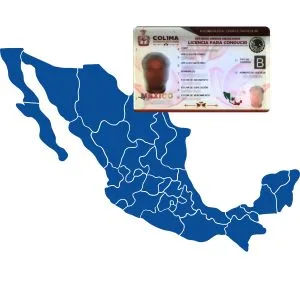
Notable features of the Colima drivers license include:
- Ghost image
- Holograms and guilloche pattern
- 2 unique ID numbers, name, date of birth, issue and expiration dates present on front
- Cardholder’s signature
Jalisco, Mexico drivers license
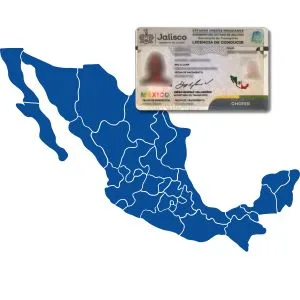
Notable features of the Jalisco drivers license include:
- Guilloche pattern and holograms
- Ghost image
- Two unique ID numbers, name, date of birth, issue and expiration dates present on front
Michoacán, Mexico drivers license
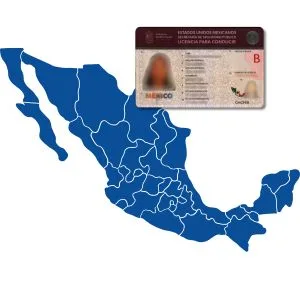
Notable features of the Michoacán drivers license include:
- Guilloche security pattern
- Ghost image
- Cardholder’s signature
- Two unique ID numbers, name, date of birth, expiration and issue dates present on front
Nuevo Leon, Mexico drivers license
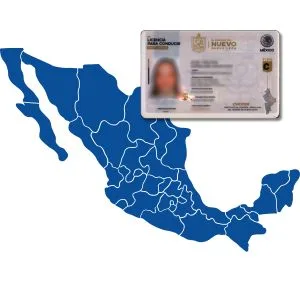
Notable features of the Nuevo Leon drivers license include:
- UV and white light holograms
- Cardholer’s signature
- Two unique ID numbers, name, address, issue and expiration dates present on front
Puebla, Mexico drivers license
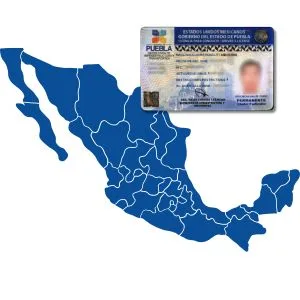
Notable features of the Puebla drivers license include:
- Guilloche security pattern
- Chip embedded in card
- Two unique ID numbers, name, nationality, date of birth, and issue date present on front
- Text in both Spanish and English
Mexican commercial drivers licenses

What are Mexican commercial drivers licenses?
Mexico issues a federally standardized commercial driver’s license (Licencia Federal de Conductor). These are required for professional drivers, particularly those transporting goods across international borders, and are primarily carried by Mexican drivers working abroad in the US. Because these licenses are federally issued, they are more consistent in format and security features than state driver’s licenses.
There are three versions of the Mexican commercial drivers license:
- Plastic card, valid for 5 years
- Printed card, valid for 30 days, reprintable as needed
- Digital version, available via the Ministry of Communication and Transportation (SCT) app
Mexican mobile drivers licenses (mDLs)

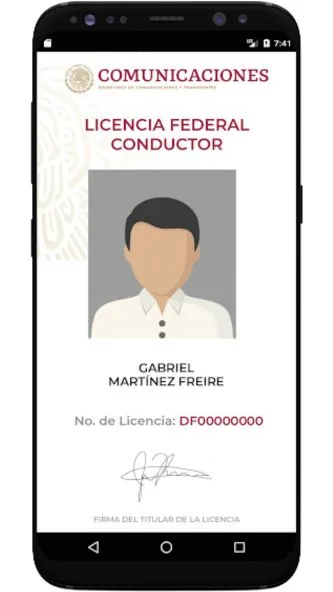
What are Mexican mobile drivers licenses?
In addition to physical cards, Mexico has introduced mobile driver’s licenses (mDLs) in several states. These licenses are stored on a smartphone through official government apps and are designed to provide a secure, convenient alternative to carrying a plastic card.
How Mexican mobile drivers licenses work
Like physical licenses, Mexican mDLs are issued and managed by individual states, and not all states currently offer them. The digital license contains the same personal data as the physical version, including name, date of birth, photo, license class, and expiration date.
Authentication of mDLs is supported through QR codes, barcodes, or NFC technology embedded within the app, which can be scanned for verification. Because they are app-based, digital licenses can often be updated instantly if the holder renews or changes information.
Mexican mobile drivers license security features
- Data is encryped and stored within the state’s official app
- Biometric access controls (such as fingerprint or facial recognition)
- QR or NFC verification confirm authenticity in real time
Verification challenges for Mexican mobile drivers licenses
Mexico is rolling out digital drivers licenses broadly, especially in states seeking modernization and fraud prevention. However, verification requires access to the official app or compatible scanning technology. Without these tools, relying solely on a visual inspection of a screenshot or image of a digital license may increase fraud risk.
Differences between US and Mexican ID cards
When verifying Mexican IDs, it’s helpful to understand how they differ from US documents. While both countries issue government-backed identification, there are some key distinctions that affect how these IDs should be authenticated.
Standardization
While each state issues its own driver’s licenses and ID cards, all must comply with federal REAL ID standards. This ensures a baseline consistency in format, security features, and data fields nationwide. Mexican driver’s licenses are issued at the state level with no federal standardization. With 32 issuing authorities, the look, feel, and features of IDs vary widely. Only voter cards, consular ID cards, and commercial driver’s licenses have consistent, nationwide formats.
Primary ID documents
In the US, the driver’s license is the most commonly used identity document, accepted across all industries and for most transactions. In Mexico, the voter ID card serves as the primary identity document, while driver’s licenses are less consistently used outside of traffic or transport-related purposes.
Why verify Mexican ID cards?
With multiple ID formats in circulation and varied security features across states, manual verification of Mexican IDs leaves significant room for error. Fraudsters continue to exploit these complexities by altering or counterfeiting documents that may be difficult for the human eye to detect.
ID verification software provides the necessary accuracy and automation to catch discrepancies, read hidden security elements, and confirm authenticity in real time. Whether your organization is verifying Mexican driver’s licenses, voter cards, or consular IDs, investing in reliable ID verification technology strengthens compliance, improves customer trust, and keeps fraud out of your business.

